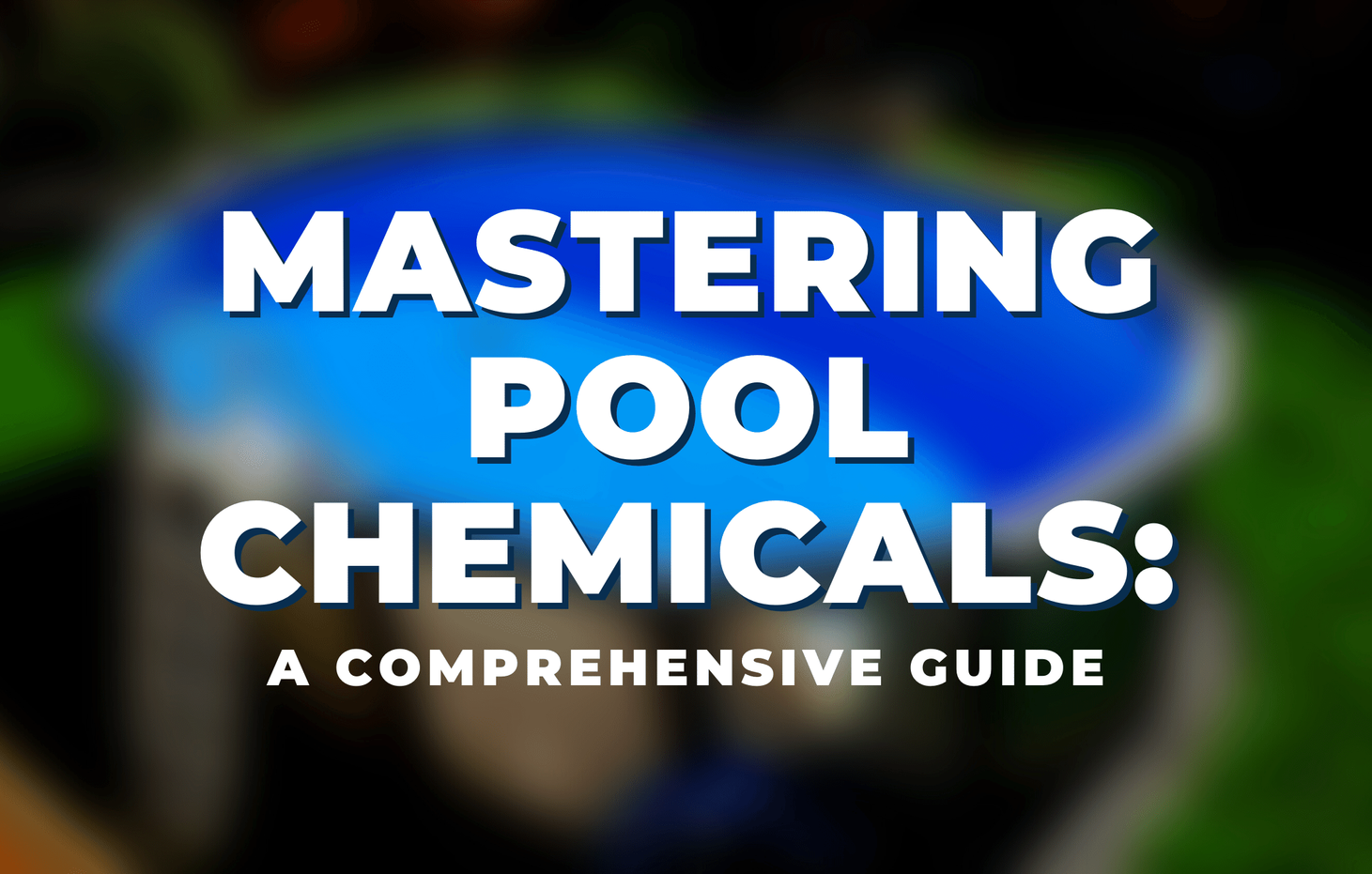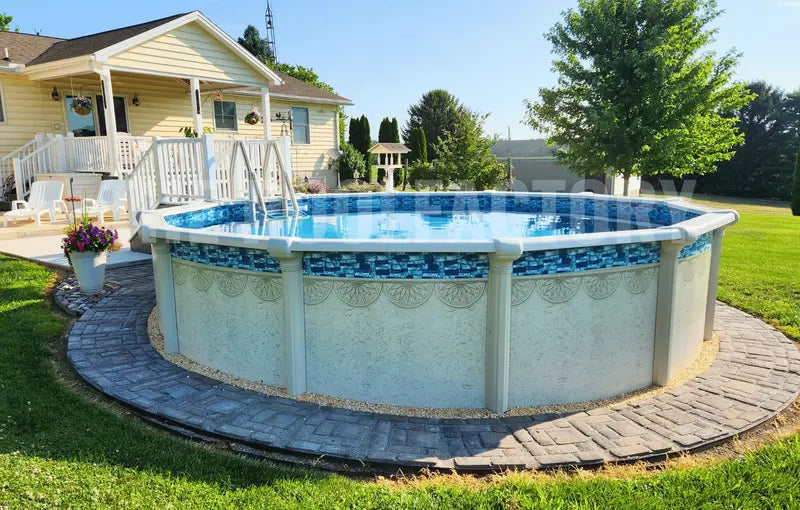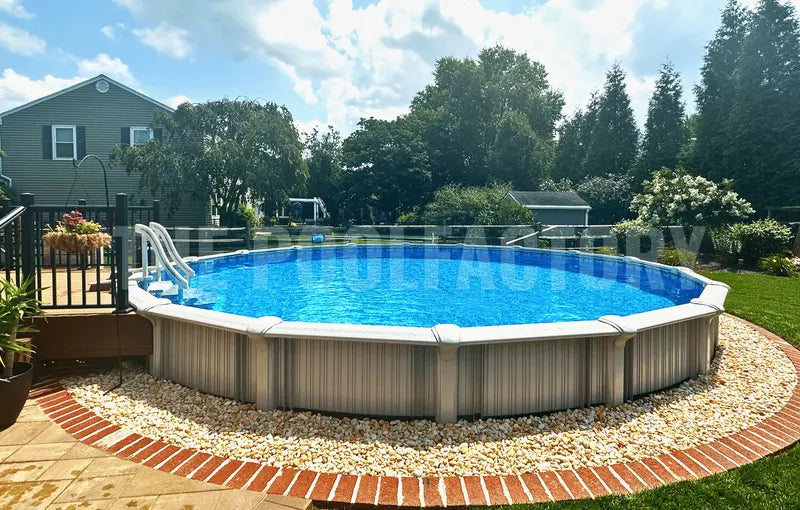

Owning a swimming pool can be a source of immense joy during the scorching summer months. However, to keep your pool water crystal clear and safe for swimming, you need to become proficient in handling pool chemicals. In this comprehensive guide, we will delve deep into the world of pool chemicals, offering you the knowledge and skills necessary to maintain a pristine and inviting pool environment.
Before we get into the specifics of pool chemicals, let's start with the basics. Pool chemicals are essential substances that help maintain the cleanliness, hygiene, and safety of your pool water. They perform various functions, including sanitizing the water, balancing pH levels, and preventing algae growth.
One of the most critical pool chemicals is chlorine. It acts as a powerful disinfectant, eliminating harmful bacteria and pathogens from the water. When you think of pool chemicals, chlorine is likely the first thing that comes to mind.
To maintain the ideal chlorine levels, you can use chlorine tablets, liquid chlorine, or chlorine granules. Regular testing is crucial to ensure the chlorine concentration stays within the recommended range. Pool chemicals, like chlorine, are vital for preventing waterborne illnesses and keeping your pool safe for swimmers.
Proper pH balance is crucial for pool water. An imbalanced pH can lead to skin and eye irritation, corrosion of pool equipment, and reduced effectiveness of other pool chemicals.
To control pH levels, you'll need pH increasers (usually sodium carbonate) to raise pH or pH reducers (usually sodium bisulfate) to lower it. Regular testing and adjustment of pH levels are essential to ensure the effectiveness of other pool chemicals and provide swimmers with a comfortable experience.
Algae can quickly turn your pool water green and murky. To combat algae growth, algaecides are your go-to pool chemicals. These products come in various forms, such as liquid, granular, and even non-metallic options for sensitive pool surfaces.
Regularly adding algaecides to your pool can prevent the formation of algae colonies, keeping your water clear and inviting. Remember, algae can be a persistent problem, so consistent use of these pool chemicals is crucial.

Now that we've covered the fundamental pool chemicals let's emphasize the importance of safety when dealing with these substances. Pool chemicals, while essential, can be hazardous if mishandled.
Store your pool chemicals in a cool, dry, and well-ventilated area. Keep them away from direct sunlight and moisture. Ensure that chemicals are tightly sealed and properly labeled to avoid accidental mixing or spillage.
Never mix different pool chemicals together, as this can lead to dangerous reactions. Follow manufacturer instructions carefully and use a separate scoop or measuring cup for each chemical to prevent cross-contamination.
When adding pool chemicals to your pool, do so with care. Follow recommended dosages and dissolve them in a bucket of water before pouring the mixture into the pool. This prevents concentrated chemicals from settling on the pool's surface or causing damage.
Regularly test your pool water using a reliable test kit. This allows you to monitor chemical levels and make adjustments as needed. Remember, maintaining proper chemical balance is an ongoing process.

Despite your best efforts, you may encounter issues with your pool chemicals from time to time. Let's look at some common problems and how to address them.
If your pool water becomes cloudy, it's often a sign of poor water circulation or unbalanced chemical levels. Check your filtration system, you may need to backwash (clean) your sand or D.E. filter. If you have a cartridge filter system it may require a thorough cleaning or replace the filter cartridge if necessary, and ensure proper chemical balance.
Green water is usually a result of algae growth. Increase the dosage of algaecides and shock your pool with a chlorine shock treatment to eliminate algae. Brush the pool walls and floor to remove any stubborn algae deposits.
If swimmers complain of skin and eye irritation, test and adjust your pool's pH levels. High pH can lead to irritation. Additionally, ensure that chlorine levels are within the recommended range.
Stains and scale buildup on pool surfaces can be unsightly. To combat this, use stain and scale removers as directed by the manufacturer. Regular maintenance and balanced chemical levels can prevent these issues from recurring.

Mastering pool chemicals is essential for maintaining a clean, safe, and inviting swimming pool. By understanding the role of chlorine, pH balancers, and algaecides, and by following safety precautions, you can ensure that your pool remains a source of joy for you and your family.
Remember to regularly test your pool water, stay vigilant for any issues, and take prompt action to address them. With the right knowledge and approach, you can enjoy crystal-clear water and worry-free swimming all season long. Make your pool a haven of relaxation and enjoyment.
Kit Contains the following items: 5lb pH PLUS, 3lb pH MINUS, 5lb ALKALINITY PLUS, 3lb ALKA DOWN, 1 QT SUPER CLARIFIER, 3 Way Test Strips (50 Strips), 1.5lb STABILIZER, 1 QT 10% ALGAECIDE
Add to Cart